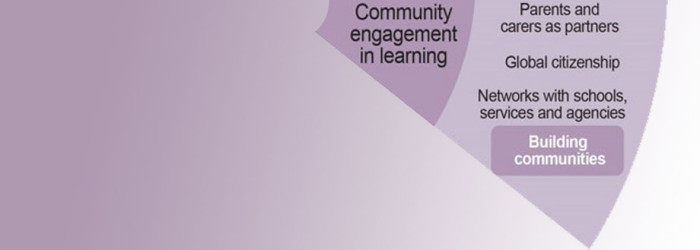Building communities
Family-school partnerships are collaborative relationships and activities involving school staff, parents and other family members of students at a school. Effective partnerships are based on mutual trust and respect, and shared responsibility for the education of the children and young people at the school.
At MPPS we have a strong commitment to student wellbeing, health and safety. There is a strong community engagement with many opportunities for parents to be involved with and provide feedback to the school.
Parents as Partners: Teachers working with parents and carers to support student learning, engagement and wellbeing through:
- Developing respectful relationships
- Establishing communication pathways through information nights, parent-teacher exchange, three-way conferences, regular communication and being accessible and communicative throughout the year.
- Being proactive in the management, communication and monitoring of concerns and feedback
- Communication of school priorities through publishing of the School Strategic Plan and the Annual Implementation Plan
- Working with parents through the classroom helpers program (Foundation – Year 2), excursions, camps, special guests (speakers), VIP days.
As a school, we support and strengthen parent involvement and connectedness through Parents Association, School Council, Walking School Bus, social events such as the School Fete, Dad’s Night, end of year celebrations and School and class activities and events.
Global Citizenship:
Building a culture of students making connections outside the school include:
- Through ICT and student blogs within the eSmart and digital learning framework
- Coastal Ambassadors Program
- Foundation visits to Doutta Gala aged care facility
- Representing the school when on camps and excursions – demonstrating the School values
- Working with students from other school as part of the MVIMP program and inter-school sports
- Contributing to the Moonee Valley Festival
Working with Networks
As a community, developing connections outside the school provides additional expertise, support and resources. Networks that we use at MPPS include:
- Moonee Valley Network (School based network) – Principal/AP attend regular principal meetings to work as a community of practise, implement Department initiatives and make connections for school based improvements.
- GANAG (instructional model) consortium – teachers attend professional learning either in the introductory group, intermediate group, key drivers and principal leadership. Through this teachers work with other teachers at their year levels. They have opportunities to form connections with their colleagues to share work. Teachers also have opportunity to skype/email Prof. Jane Pollock to support teaching and learning (particularly the development of curriculum plans).
- Moonee Valley Council – the council invites schools to participate in the Moonee Valley Festival each year. They also run forums for teachers and provide support for families.
- Moreland Council – the council provides support for families living in Moreland.
- Sam Merrifield Library – as our local library, they often involve our students in activities such as Book Week as well as donating books to our school.
- Pre-schools, kindergartens – to support our transition process, teachers visit kindergartens to meet with the teachers and provide flyers/DL cards early in the year (as part of our enrolment process). These relationships continue throughout the year with visits to or from the kinders. Once the familiarisation/transition program starts the school transitions coordinator will contact the pre-schools in person or over the phone as part of handover.
- Secondary Schools – there are a range of opportunities for our students to work with secondary schools including music, concerts, science workshops as well as formal transition opportunities.
- Student Support Service – the teachers and school works in collaboration with the Student Support Services to meet the needs of specific students. This is done through the referal process with the assistant principal and the key contact from the student supprt services. Services provided include assessments/testing, classroom observations and recommendations, targetted short term tutoring, teacher advice and staff professional learning.
- Outside Agencies – some students will see therapists outside of school. Teachers will provide feedback and follow up appropriate recommendations so that the partnership works effectively to support the learning of the student.
- Moderation – to build consistency and alignment of teacher judgement, as well as moderating across the school, teachers will have opportunities to moderate outside the school (including primary schools through the GANAG network and secondary schools such as Strathmore Secondary School).
Resources to support a Community Engagement in Learning:
| Engagement and Wellbeing Policy Digital Technologies and eSmart Policy Feedback (concerns and complaints) policy Parenting ideas resource – helping parents Parenting ideas resource – helping teachers |
